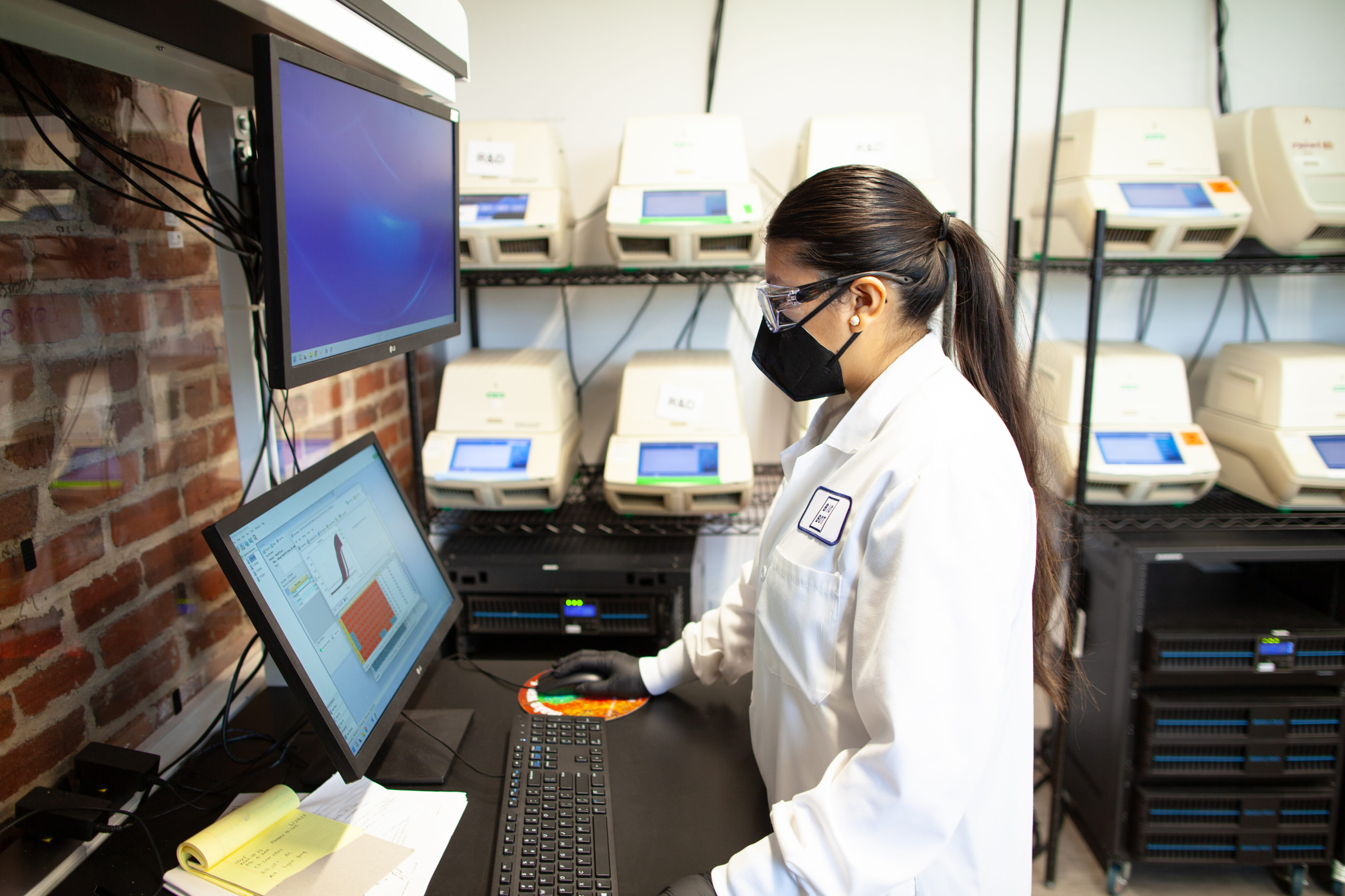
Blog
Mass vaccination, Delta, and wastewater COVID-19 data

October 18, 2021
Interpreting wastewater data in the changing pandemic

At Biobot, we’ve heard a lot of questions about how mass vaccination and the spread of the Delta variant affect interpretation of wastewater data. The short answer is we believe that they have had at most a small effect.
Vaccination does not cause you to shed the virus
Vaccination is not detected in wastewater because vaccination does not lead the body to produce the markers we use to track COVID-19 activity in wastewater. There is a common misconception that being vaccinated causes you to shed the virus. In fact, it does not. The COVID-19 vaccines do not cause infections, and they do not cause shedding of any part of the virus. Wastewater testing does not directly detect vaccination.
Wastewater monitoring detects any SARS-CoV-2 variant
Wastewater monitoring and clinical diagnostics both test for the virus by looking for a specific section of its genome. The different virus variants have small differences in their genomes, but so far, the part of the genome that wastewater and clinical testing look for is nearly identical in all the variants. At this time, wastewater and clinical testing measure the presence of all COVID-19 variants together.
Biobot is also working on methods to detect each variant separately. In principle, genomic sequencing can detect the differences in virus genomes that can identify each variant. However, this is still a work in progress.
Vaccination and Delta have not meaningfully changed viral shedding
If Delta leads to greater per capita nasal shedding, does that mean that it now requires a smaller number of infected people to produce the same wastewater virus concentration? In other words, does the same wastewater virus level mean that fewer people are infected? While nasal shedding due to Delta is likely higher than for previous variants, to our knowledge there are no reports of increased fecal shedding among Delta patients.
Conversely, if vaccination leads to less shedding, does this mean that it takes more infected people to produce the same wastewater virus concentration? In other words, does the same wastewater virus level mean that more people are infected? Breakthrough infections could plausibly lead to lower fecal shedding compared to infections in unvaccinated people. However, the majority of infections in the US are still among the unvaccinated, and to our knowledge there are no reports that fecal shedding rates vary according to vaccination status.
In analyses of the more than 15,000 wastewater samples processed by Biobot, we have not found substantial changes in the relationship between wastewater concentrations and reported numbers of COVID-19 infections due to either mass vaccination or the sweep of the Delta variant. If Delta were causing greater viral shedding in feces per infected person, or if vaccination were causing less shedding per infected person, then we would expect that the ratio of wastewater concentration and reported case numbers would change. However, we have found no substantial change in this ratio. We continue to monitor these values, in case the situation should change.
Written by Scott Olesen, PhD
Scott is a computational epidemiologist at Biobot. Trained at MIT and Harvard, his specializations include infectious diseases, antibiotic resistance, and the microbiome.





